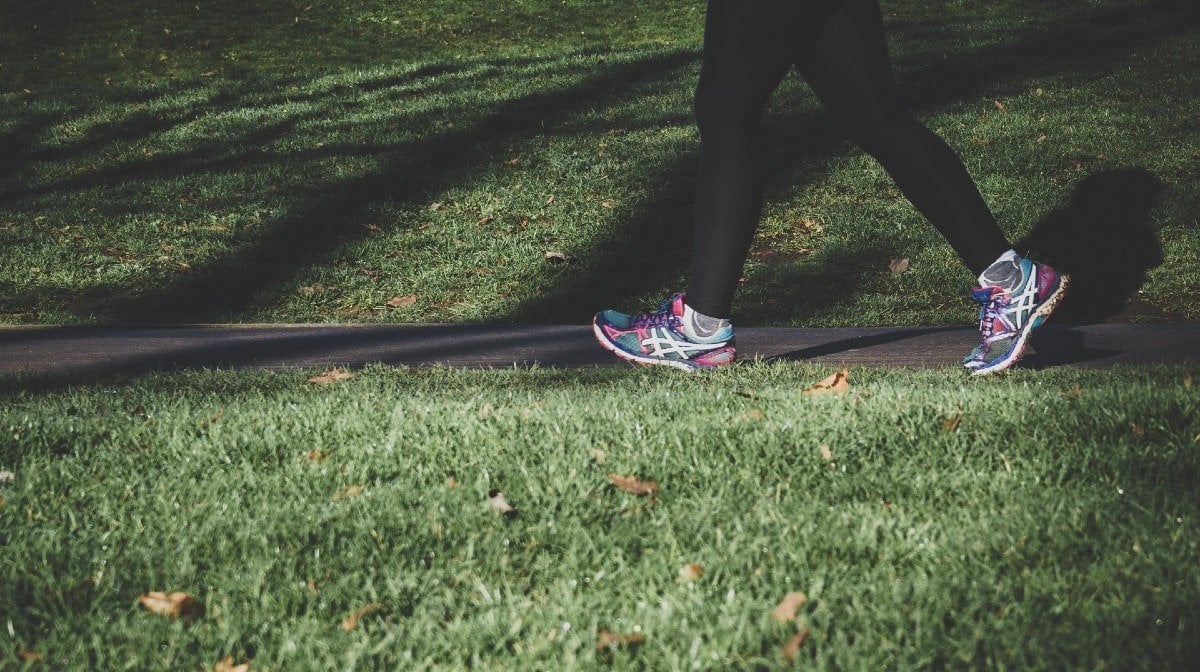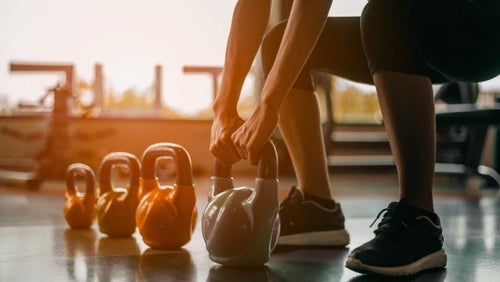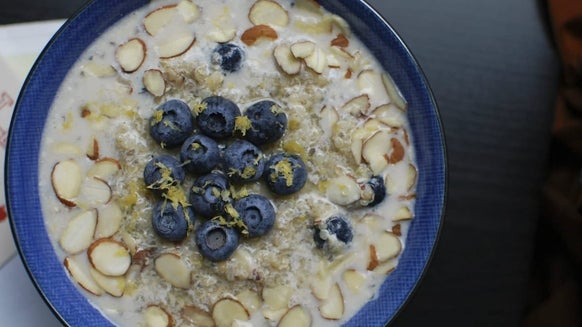11 Ways To Break A Weight Loss Plateau

What is a Weight Loss Plateau?
Ever been doing really well on your weight loss journey, but suddenly the number on the scales won’t budge? Then you’ve probably experienced a weight loss plateau. They can be very frustrating, especially if you feel like you're trying everything and nothing seems to work.
If you’ve recently started eating a little healthier to try and lose some fat, a few tweaks may result in improved progress quite quickly. For those who have been following a certain diet for a longer period, the issues can be more complex. Regardless of the reason for your weight loss plateau, it’s important to understand that weight loss isn’t always linear. Fluctuations occur on a weekly and even daily basis. Therefore, patience is a key part of the process.

11 Ways to Break a Weight Loss Plateau
1. Track your calories
The fundamental factor when it comes to weight loss is energy balance. If you’re consuming fewer calories than you expend then you’ll lose weight. This is referred to as a negative energy balance or a calorie deficit.
Calculate a calorie deficit for you, here:
2. Keep protein intake high
Of the three macronutrients, protein is the most satiating.
A high protein intake will also reduce the amount of lean muscle mass lost during your weight loss. This is important for keeping the weight off long-term, as lean muscle contributes to your resting metabolism and overall energy expenditure.
3. Carbohydrate periodisation
If you’re carefully tracking your calories and macros, an additional way to accelerate fat loss may be to be strategic with your carbohydrate intake. Evidence shows that performing exercise in a glycogen state increases the amount of fat used as fuel during that exercise session.
However, carbs can be incredibly beneficial for recovery after a workout, so don't write them off entirely. Read up on carbs here:
4. Increase training volume
Increasing the amount of training volume will increase your energy expenditure and increase the likelihood of being in a negative energy balance.
Adding in an extra 10 minutes of cardio, or including more sets/reps in your weight training will increase your volume, and help keep you in an energy deficit.
5. Increase daily activity and step count
Increasing your daily step count can also be a good way to increase the number of calories you expend. Going for a low intensity evening walk can increase your daily calorie expenditure without being too hard to recover from.
Little things also add up. Things like parking the car further away from the shops and choosing the stairs wherever possible all contribute.
6. Reduce alcohol intake
Alcohol contains 7 calories per gram and consuming alcoholic drinks regularly is sure fire way to increase your daily calorie intake.
Alongside the calories in the drink itself, they're often had with snacks and the calorific foods that help cure a hangover may wipe out your calorie deficit pretty quickly. Alcohol can also reduce your ability to recover from a training session and a heavy night on the booze may mean your training quality is affected.
Read up about how alcohol affects weight loss here:
7. Stay hydrated
Making sure you stay hydrated is an important way to keep your energy levels high. This will help ensure you are able to train hard during your workouts, and get more light movement in too.
Drinking plenty of water may also help with hunger cravings as it's possible to confuse hunger with dehydration.
8. Increase fibre intake
Like protein, fibre also has a high effect on satiety.
Fibre also helps with digestion and prevents constipation which can have an effect weight loss.
9. Focus on sleep
Ensuring you get plenty of high-quality sleep can have a big impact on your weight loss journey. There’s evidence to suggest that poor sleep can affect appetite regulation and make it more likely that you’ll want to snack on sugary foods.
So, avoid any unexpected cravings by getting your 8 hours in. We’ve got some great tips on getting the best night's sleep, here.
10. Diet Breaks
If you’ve been strict with your diet and exercise and you’ve found your weight loss stalling after a couple of months, one way to improve long term weight loss is to include diet breaks.
First off, after being in a calorie deficit for a while, your body will adapt and your resting metabolic rate will adjust itself. This means you might have to reduce your calories even further to get through a plateau, which may not be healthy. However, a diet break of 2 weeks at a time has been shown to reduce this effect.
Introducing diet breaks may also make it easier to stick to your diet long-term. Allowing yourself a decent period of about 2 weeks to enjoy foods that you might not ordinarily have, gives you flexibility. It'll also likely have positive mental effects!
11. Weight loss supplements
If you’re following all of the above tips, there are certain supplements which may help give your weight loss a boost. These include caffeine and b-vitamins. R
Take Home Message
It’s important to remember that long-term weight loss is not linear and it’s normal for your body weight to fluctuate. Following each of the above tips and staying patient will increase your chances of losing the weight and keeping it off in the long term. Remember, be kind to yourself as well, as a weight loss journey can be tough mentally too.
READ THESE NEXT:

5 Ways To Reduce Body Fat While Building Muscle
How you can build that lean muscle.

5 Amazing Health Benefits of Psyllium Husk
Could this be the nutrient your diet's been missing?

Liam is a certified sport nutritionist with the International Society of Sport Nutrition and is enrolled on the British Dietetics Association’s Sport and Exercise Nutrition register. He has a Bachelor’s of Science in Sport and Exercise Science and is graduate of the ISSN Diploma in Applied Sport and Exercise Nutrition.
Liam is an experienced personal trainer, helping clients reach their health and fitness goals with practical, evidence informed exercise and nutrition advice. In his spare time Liam has competed in numerous powerlifting competitions and enjoys hill walking, football and expanding his recipe repertoire in the kitchen.Find out more about Liam's experience here.






